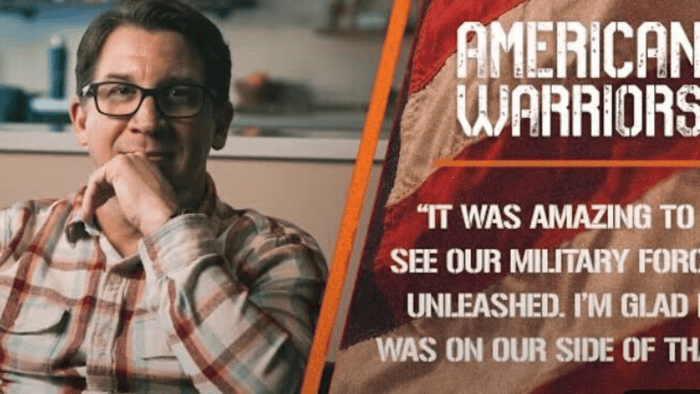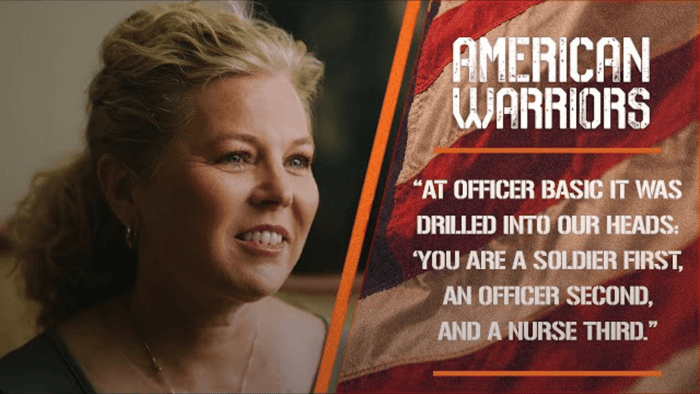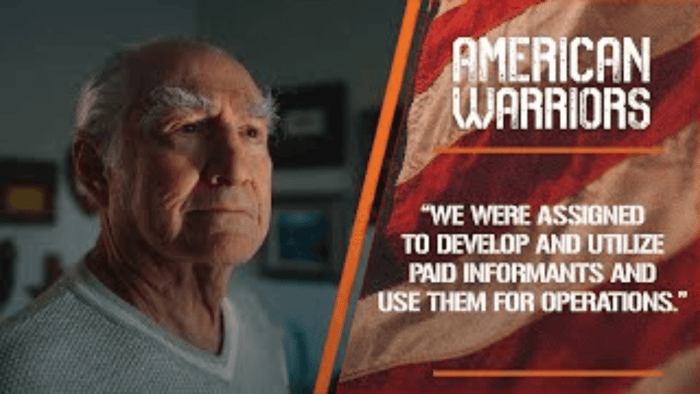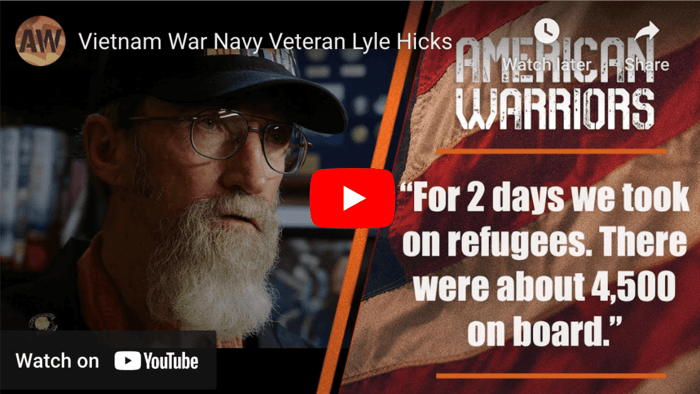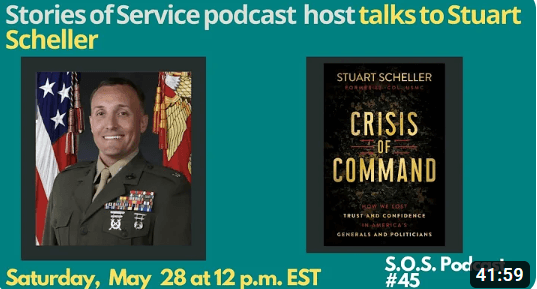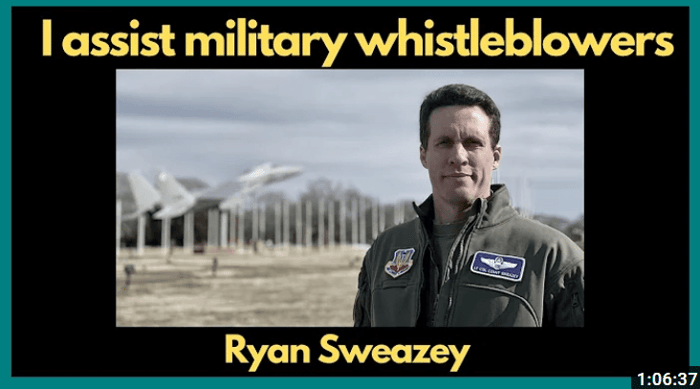Lesson Plan
In "Derek Abbey | Part 1| USMC Communicator and F18 Aviator" Derek discusses his first combat mission during Operation Iraqi Freedom and his desire to contribute to the best of his abilities, including becoming part of Marine Special Operations Command. In this lesson plan we have objectives of the video series, along with group discussion questions.
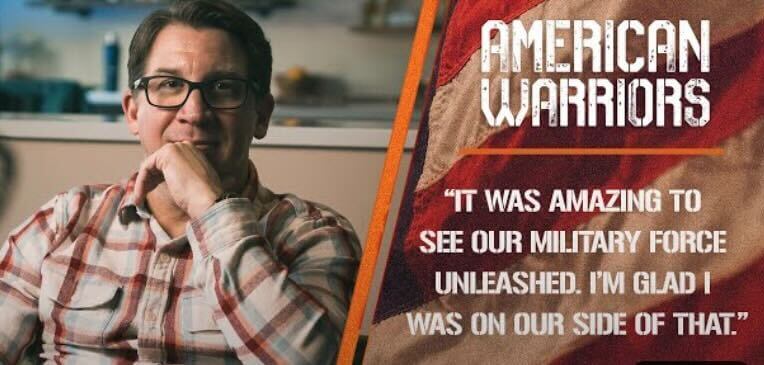
Objectives
- Gain insight into the experiences of a USMC Communicator and F18 Aviator
- Understand the challenges and rewards of serving in the Marine Corps
- Learn about the development of Marine Special Operations Command
Group Discussion Questions
- What motivated Derek Abbey to join the Marine Corps?
- How did his experiences as a communicator and F18 aviator prepare him for his role in Marine Special Operations Command?
- What do you think are the most challenging aspects of serving in the military?
Introduction
Derek Abbey, a former USMC Communicator and F18 Aviator, shares his experiences serving in the Marine Corps. He talks about his motivations for joining the military, his time flying F18s, and his involvement in Marine Special Operations Command.
Feature Video
https://www.youtube.com/watch?v=CRY9v-qE7VM&t=13s
Transcripts
(00:00)
It. When you look at a log like this, all the black ink is just regular training missions. And then the different color ink red in this case is combat time. So most of my time in the Hornet was combat flights instead of just to and from flight or training flights in the United States.
(00:29) The first time I was ever shot at was March 20, 2003. That was the mission with the funny looking clouds. I was trying to figure out why those clouds look so awkward. And oh, there's another awkward looking cloud.
(00:42) And then realize that it was AAA exploding next to the jet, because you don't hear the boom or anything like that. It's just a there's a cloud. There's a cloud. And you realize like, oh. And then the war kicked off, and then it was Operation Iraqi Freedom from then.
(01:37)
I was raised by single mom that didn't graduate high school. My mom did everything that she could to raise is a rambunctious little boy by herself. And when I was 13 years old, she unexpectedly passed away from a brain aneurysm I struggled with.
(01:59)
Losing my mom for a long time, that was just a ship adrift. It was the moment in my life that dictated a lot of my future. I just wanted to be something. So I I enlisted in the Marine Corps. The Marine Corps provided everything I needed as a young 18 year old without a rudder sale.
(02:25)
And it was from that moment on that confidence just started building. And I started looking at areas where I could excel and succeed and things like that and found them relatively quickly in the Marine Corps.
(02:43)
So I was initially a communicator. I was a radio operator and then also a multi channel and microwave radio operator. My first duty station was Marine Corps Air Station El Toro which no longer exists in Orange County, California.
(02:58)
My first enlistment didn't include too much craziness. I went to the field quite a bit in the desert in Southern California and Arizona and places like that. As a young Marine, you're always looking to prove yourself and proving yourself as a Marine.
(03:16)
The standard is combat. And in my mind, I was thinking, when is my time going to present itself to prove myself, to prove myself as a Marine, as a man and things like that? And now fast forward, I finish college, I get commissioned.
(03:36)
I'm commissioned a ground officer. And while I'm at the basic school where all Marine officers have to go for six months, I was selected for an aviation contract. I didn't want to go to flight school.
(03:45)
I wanted to be in my mind, I was thinking about being a Marine infantry officer and having a platoon of Marines and doing what Marine officers do. And I talked to my boss about it, and he says, you're physically capable.
(03:59)
Capable. You're going to flight school? Well, if I'm going to be in the aviation community, what platform do I want? And at the time, the F 18 in my mind, was the best platform. The FA 18 has seized center stage as the world's elite strike fighter.
(04:23)
I was an fat Moism so vaccine F 18 while I was in flight school. Airborne down over Key West 911 occurred and it was very obvious we were going to war right after that. From CBS News headquarters in New York, here is Dan Rather.
(04:42)
It was just over 90 minutes beyond President Bush's deadline for Saddam Hussein to leave Iraq that US warships and planes there were F 117 stealth bombers involved. Launched the opening salvo of Operation Iraqi Freedom.
(05:14)
Track through flight school and the F 18 Hornet rag, as we call it, because they knew Operation Iraqi Freedom was going to start. And so I joined my first squadron and got sent to the Middle East. And I was actually overhead Iraq when Operation Iraqi Freedom kicked off the first mission of Operation Iraqi Freedom, which I wasn't planning on it being the first mission that I was in for.
(05:40)
Operation Iraqi Freedom was actually a reconnaissance mission over a place called Basra in southern Iraq. I remember looking out the canopy and looking at this cloud and thinking, that's a funny looking cloud, and then looking out the other side of the canopy, and that's also a funny looking cloud.
(05:57)
And both Chad and. Realized at the same time that we were being shot at, that was AAA blowing up. And so we did the shit moment that that you do the first time you're ever shot at and defended and all that stuff, and completed the mission, but then made our way back to we were flying out of Kuwait at the time.
(06:16)
So landed came, got out of the jet, the the crew, the ground crew members were there and they're, they said, hey, the the wars kicked off. And for me, I always reflect on that and just think that's important information.
(06:30)
And it's not like we didn't have radios. Somebody could have called and said, hey, just so you know, this conflict is active now. Then it was on. So then things changed and we were striking targets and doing all sorts of things, because now it's an active war.
(06:45)
I think it's funny because being over, I was airborne when 911 occurred, and then I was airborne over Iraq when OIF kicked off. And both of those experiences were very, very surreal. I say I was lucky enough to see what happens when you take the leash off of our military, especially the Marine Corps, and see what they're truly capable of, and I'm very, very happy that I was on our side of that's.
(07:35)
Marines and soldiers are pushing their way north through, um, out of Kuwait into Iraq on their way to to Baghdad. And so the missions that I was supporting initially turned into strike missions. So we were penetrating away into Iraq to strike key targets that could impede.
(07:56)
Progress. We made our way through that country very, very quickly with the ground troops and attained the objectives that we were trying to obtain. And the F 18s were very expensive to have in the Middle East.
(08:13)
And so one of the first things that they did was we, quote, unquote, won the war. We're going to send all these assets home that don't need be here. So we were one of the first folks that were sent home after the kickoff of that conflict, and it was early in the next year where I was based in San Diego, California.
(08:33)
And I'm watching the news, and I'm watching Marines try and push their way through Fallujah and other things like that, and their Marines are getting killed and injured, and I'm sitting in sunny Southern California.
(08:44)
It just doesn't seem right. And so I went to my boss and said, you know, I don't know if there's going to be an opportunity, but I don't feel comfortable sitting at home while there's a war going on.
(09:02)
And so if I could put my name in the hat to go back, I'll do it. And again, kind of careful what you wish for because they were sending an F 18 squadron back. Very different experience on the first time because I got to support the Fallujah campaign, and we were developing closer support for urban cast in real time while we're executing that mission.
(09:29)
And then I came back from that deployment, actually deployed to the Far East for a while. And I do know that I was there in 2003, 2004, five, six and seven in the Hornet, which was nice for my tax returns because I got a tax break.
(09:51)
I really like to do my job and. And so if there's a war going on, for me, it just felt like I should be contributing. And on my last deployment in the FA team, I knew I was gonna be coming home and I'm gonna be executing orders.
(10:10)
And so I was looking for things that I wanted to do, missions that I wanted to be a part of. And that year, a colleague of mine was a part of Dev group, part of Seal Team Six. People know who that is now.
(10:25)
So the Seal contingent, and he was working with them as a forward air controller, jtech, as we call them, too. What was happening in parallel while I was trying to get this assignment was the Marine Corps was creating Marine Special Operations Command before I left Iraq.
(10:45)
I actually got orders to be a plank holder and original member of Marine Special Operations Command for their West Coast Battalion. And then, so I was part of the battalion and ended up becoming part of the first Delta Company to play with that unit.
(11:01)
I was always trying to strive for what I considered the best. So when I was going aviation, I wanted the F 18. I thought that was the best platform. I was going back to the ground. Like the force reconnaissance community or marine special operations community.
(11:18)
Navy seal community. Like these are the elites in many people's minds. How can I contribute my talent and strive to be the best version of myself and support in the best way? And that was the way I saw it.
(11:31)
And so I strive to be a part of that. And some how they, they let me in.
